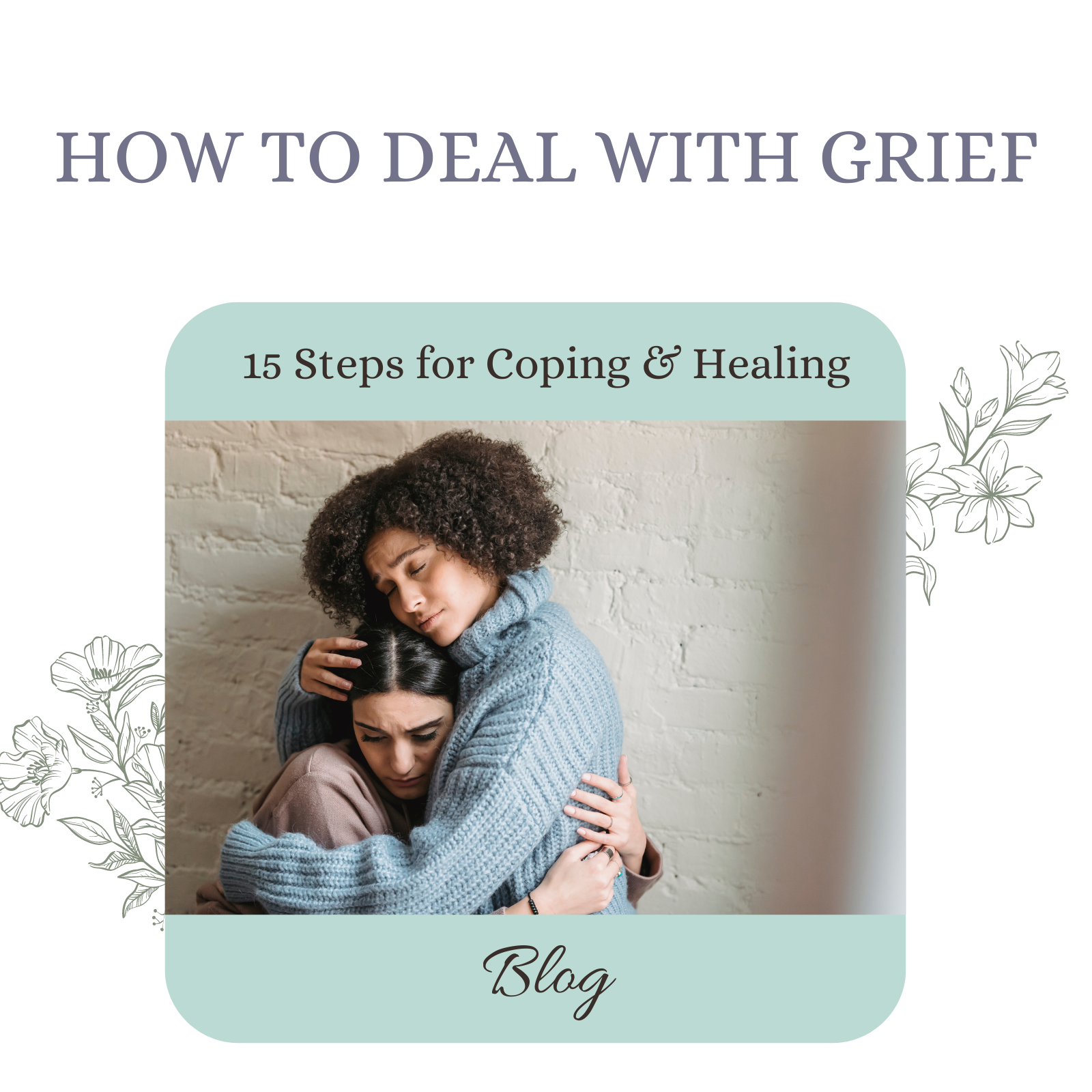How to Deal with Grief: 15 Steps for Coping and Healing
Grief comes in many forms. It can be the result of a death, a break-up, or any other major loss. The pain can be overwhelming and seem impossible to cope with. But it is possible to heal, both physically and emotionally. In this blog post, we will discuss 15 steps that can help you cope with grief and start the healing process.
Allow yourself to feel the pain and sadness of your loss.
It is natural to feel a range of emotions, including anger, guilt, and loneliness. Don't try to bottle up your feelings or push them away. Accepting them is an important part of the healing process.
Don't try to bottle up your feelings - find a way to express them safely.
This could involve writing in a journal, talking to a friend or therapist, or joining a support group. It is important to find an outlet for your emotions so that they don't become overwhelming.
Allow yourself to grieve in whatever way works best for you.
There is no right or wrong way to grieve. Some people find solace in religion, while others find comfort in nature. Some people prefer to grieve alone, while others find support in friends and family. Do whatever feels right for you.
Give yourself time to heal.
The grieving process can take months or even years. Don't be hard on yourself if you're not ready to move on. Allow yourself the time and space you need to heal at your own pace.
Seek support from friends and family members.
It can be helpful to talk about your feelings with friends or family members who are supportive and understanding. They can offer practical help, such as cooking meals or taking care of errands, as well as emotional support.
If you don't have close family or friends, there are other sources of support available. Many community organizations offer grief counseling and support groups. There are also online support groups available.
Don't isolate yourself - get out and do things that you enjoy.
It is important to keep up with your hobbies and activities, even if you don't feel like it. Isolating yourself will only make the grieving process harder.
Find ways to honor your loved one's memory.
This could involve planting a tree in their honor, writing a letter to them, or creating a photo album or scrapbook. There are many ways to keep their memory alive.
Talk about your loved one - don't be afraid to mention their name.
Mentioning their name aloud can help you feel connected to them and can also help others feel comfortable talking about them.
Take care of yourself both physically and emotionally.
During times of grief, it is important to take care of yourself both physically and emotionally. Get plenty of rest, eat healthy meals, and exercise regularly. Also make sure to schedule time for activities that make you happy. It can be tempting to neglect yourself, but none of that will help you. Also, remove unrealistic expectations and give yourself the grace to heal in the way you need.
Emotionally, my favorite ways to heal and go through the grieving process is by utilizing the power of Aromatherapy and Bach Flower Remedies to enact an emotional shift at a physical level. They are very powerful for me and my clients. Contact me for a consultation and see if Aromatherapy and Bach Flower Remedies may be the right fit for you.
Allow yourself to cry, grieve, and mourn in your own time and way.
This is probably the most important advice on this list. Grieving is a process that takes time, and there is no right or wrong way to do it. So cry when you need to, grieve in whatever way works for you, and don't be afraid to ask for help when you need it.
Talk about your experience with someone you trust.
This could be a friend, therapist, clergy member, or anyone else who you feel comfortable talking to. Talking about your experience can help you process your emotions and start to heal.
Express yourself through art or writing.
Creative expression can be a helpful way to express your emotions and start to heal. You don't have to be an artist or a writer - just do whatever feels right for you.
Seek professional help or a grief support community if necessary.
If you find that you are struggling to cope with your grief, seek professional help or join a grief support community. These resources can be incredibly helpful in dealing with grief. Sometimes, it's just the simple fact of not being alone in it and hearing how other's are coping can be comforting or relieving.
Delegate Burdensome Tasks
If needed, consider outsourcing some help for the bigger or even more mundane tasks, like house cleaning, grocery shopping, lawn maintenance, etc. for a time. When you are dealing with heavy things emotionally, it's time to take a step back and allow yourself the room to heal. Perhaps for you, having less responsibility or physical tasks on your plate is more helpful, especially if you aren't sleeping well or functioning as you normally would yet. There is zero shame in seeking outside help when you need it most, especially if you don't have a large support system around you.
Be patient with yourself - healing takes time and is a unique process for everyone.
If you find yourself struggling, don't be afraid to reach out for help. There are many resources available to help you through this tough time. Remember that healing takes time and everyone grieves in their own way. Be patient with yourself and give yourself the grace to heal at your own pace.
Grief comes in many forms, and the pain of a loss can be overwhelming. But it is possible to heal, both physically and emotionally. In this blog post, we have outlined 15 steps that can help you cope with grief and start the healing process. If you are struggling with grief, don't hesitate to reach out for help. There are many resources available to you, including support groups and therapy. And don't forget to accept your feelings; suppressing them will only prolong the healing process. Have you tried any of these tips? Let us know in the comments below!
Sending you much love and many prayers for your continued healing,
~ Crystal


